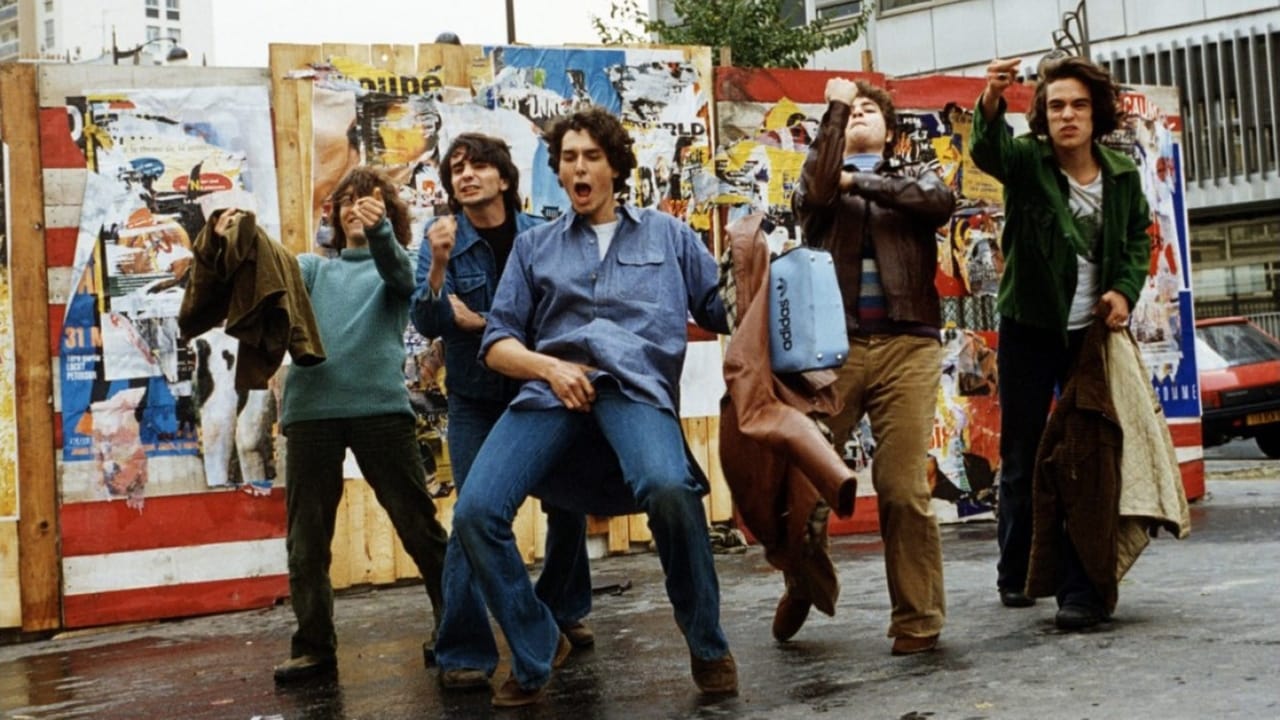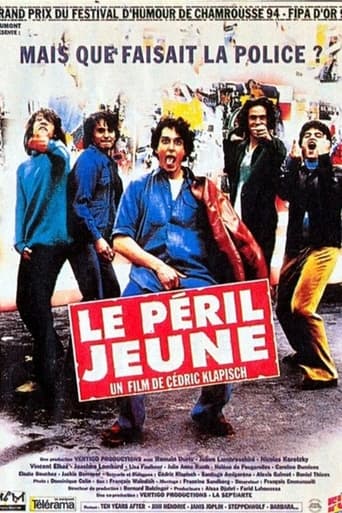Tetrady
not as good as all the hype
GetPapa
Far from Perfect, Far from Terrible
Acensbart
Excellent but underrated film
Taha Avalos
The best films of this genre always show a path and provide a takeaway for being a better person.
leplatypus
In France, we have a famous 80s comedy about lazy, funny teens in high school getting their diploma (« Les Sous Doués »). Here, it's the same thing but during the decade before, thus in the 70s : what's striking is the high politic and societal consciousness of those students (marxism, feminism) and their fashion style (wool) that dresses them like shepherds ! In the 80s, those 2 facts have disappeared but we had still style and education (I studied then), whereas nowadays, in the next millennium, those same classes are just hollow, stupid and dress in sport-ware all the time !As a Klapish movie, we can discern already his future trademark : it's fresh, funny and he isn't afraid to play with the frame (here, when they are all stoned !). He knew already how to blend some serious matters (jobless, getting old and responsible, falling in love) in a light content. His casting was great as he was one who discovered Romain. All his buddies are cool too and i admit that the young English teacher is just amazing to shake a young shy student (like I was).
WilliamCKH
I like the way Klapisch brings these characters back together, through the birth of Tomasi and Sophie's baby. It's a great way to recall the memories of youth...waiting for a baby to be born.Tomasi has died and the group is discussing their memories of him, and of a time ten years before when they were carefree kids looking for love, friendship, meaning, in their lives. The vignettes that Klapisch has painted for this movie are full of bittersweet humor and energy. For example, the scenes where they're deciding what party to join, what demonstrations be part of, what organizations to form, trying to get into the feminists group. "If we form a club, we'd let you in". It shows young adults on the brink of adulthood, yet still able to fight the urge for responsibility, at least for a little while. It very much informs the viewer of later Klapisch works like L'auberge Espagnole and Les Poupees Russes. Klapsich is particularly adept at honing in on one character while at the same time the painting the periphery characters with the same multi-dimesional brush.It is both a sad and happy film at the end and very much true to life. There are no grand revelations in the characters, episodes of each of their lives are lived and they've moved on gradually maturing into who they've become. It is a story we can all relate to.
dbdumonteil
Basically, Cédric Klapisch's second long feature movie had known a genesis like "Duel" (1971) by Steven Spielberg. It was to be shot for the television and broadcast on the Franco-German channel: Arte. But it was eventually exploited in the French theaters. This film, partly autobiographic brings out a deep nostalgia through the realist vision on which it focuses. It's the story of a bunch of friends who are gathered for the waiting of Sophie's childbirth and they especially remember their memories when they were in high school: teachers, girls, drugs, demonstrations etc... They were inseparable and motivated by a strong thirst for living.The movie is constructed like a long and vibrant flash-back, momentarily interrupted by sequences of the present moment. To understand the whole movie, let's quote the director's opinion about his work: "the action takes place in 1975, a year of transition between the seventies and the eighties, between a collectivist and individualistic time". If we don't really feel the individualist side, on another hand, the collectivist feeling is very evident. In 1975, society is divided in several faces including 2 significant ones. There are the ones who try to conserve a hippy attitude and the others, aware of the economic problems of their time and decided to fight them, notably through demonstrations where solidarity was a strong asset (rise of unemployment). It is precisely these economic difficulties, at the time considered as not important but which later in the eighties were to rise sharply, making the society enter an individualistic sphere with the evaporation of solidarity. Gérard Jugnot will clearly show it in his film "une époque formidable" (1991). But this transition is also made at the level of the main characters' mentality. They are presented as carefree and rowdy teenagers who will become conscientious grown-ups, the baccalauréat is a sort of frontier between these two worlds.What makes "le péril jeune" so enthralling is that it is mostly filled with dialogs as straight as a die which often cleave through the air revealing Klapisch's great ease with his topic. Sketching his characters with a touch of irony and tenderness, he is supported by a group of young actors all remarkable and we are really under the impression that they fully blossom in their respective roles. I watched a documentary about the film in which the actors have excellent memories about the shooting. Besides, thanks to "le péril jeune", Klapisch made a name for Romain Duris (who was to become Klapisch's favorite actors), Vincent Elbaz and Elodie Bouchez and he contributed in launching their careers in French cinema. In another extent, it would be unfair to neglect the rest of the cast, just outstanding because most of the secondary characters escape from a tempting caricature (the headmaster, the teachers).It is also useful to add that Klpaisch brilliantly uses his camera: to shot sequences of the present moment when the friends are in the hospital, he sticks it in front of them and nearly doesn't move it. Whereas in the long flash-back, his camera is constantly moving. Then, humor is well present throughout the movie but it doesn't stop it from ending on a dramatic note since we learn Tomasi's death due to the drug. Moreover, we leave the projection with a little of melancholy as if disillusions had eventually prevailed over hopes even if the very last shot shows us the four friends running with frenzy in the street.Klapisch moves up a rung in comparison with his previous movie "riens du tout" (1992) and signs here, a movie that enchants us. This joy which treats the eyes is all the more intense as the director's forthcoming movies, "un air de famille" (1996), "l'auberge espagnole" (2002) will be equal to the hopes. At last, "le péril jeune" should revive good old youth memories to the ones who were students in the seventies.
tnk
This is one of the very few teenage movies that can be watched over and over again. It is the simple story of a group of teenagers in the mid 70s, with nothing really exceptional happening (no serial killers, no alien abductions,...), just the life of this group of teenagers who are very well written and acted : Almost everyone can find himself in one of the key figures of the movie. That's what makes it a movie you can watch over and over again. The plot manages to "link" intelligently the different sequences, a task in which most wanna-be realistic teenagers movies fail. For 70s music lovers, this movie contains a lot of 70s rock hits, so don't miss it !For a trip back in the Paris of the 70s, rent this tape - time machines are still too expensive !

